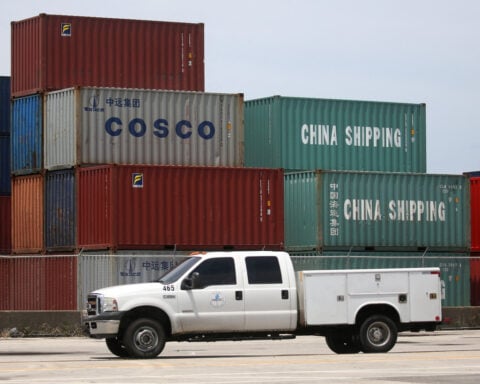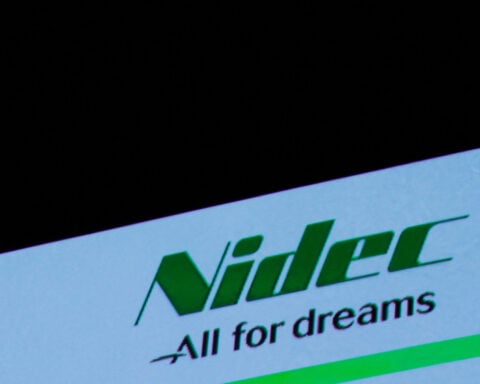By Manoj Kumar and Nikunj Ohri
NEW DELHI (Reuters) - India will not sign a global corporate tax deal focused on highly profitable multinational firms unless its concerns on dispute resolution and the treatment of withholding tax are addressed, a finance ministry official said on Thursday.
The so-called "Pillar 1" arrangement, part of a 2021 global two-part tax deal, aims to replace unilateral digital services taxes (DSTs) via a new mechanism to share taxing rights on multinational companies, such as U.S. tech giants Alphabet's Google and Amazon.com and Apple.
India is "constructively engaging" with all the countries for the successful conclusion of "Pillar 1", and was hopeful the deal would be finalised soon, Revenue Secretary Sanjay Malhotra, one of the top finance ministry officials, said.
"However, it cannot be at the cost of our own interests."
U.S. Treasury Secretary Janet Yellen in May accused India of refusing to engage on issues important to U.S. interests, noting that negotiations were stuck.
"Unless our suggestions are accepted and we get a reasonable solution which is acceptable to us. We cannot agree to the formulation," Malhotra told Reuters in an interview.
Among other issues, India does not want any tax-related disputes to be subject to international arbitration.
As a conciliatory measure, India proposed to remove a 2% equalisation duty on digital service providers that would cost the Indian government about 25 billion rupees ($300 million) annually.
Talks over a global tax deal are continuing well past a June 30 deadline and governments are now looking to a Group of 20 finance leaders' meeting in Brazil for progress.
The stakes are high. A failure to reach agreement on final terms could prompt several countries to reinstate their taxes on U.S. tech giants and risk punitive duties on billions of dollars in exports to the U.S.
Many countries are already implementing Pillar 2, which sets a global minimum tax of 15% on multinationals, although it has not be ratified by the U.S.
On Pillar 2, the official said, India has set up a panel to frame rules for its implementation.
(Reporting by Manoj Kumar; Editing by Sharon Singleton)

 India's navy launches submarine, warships to guard against China's presence in Indian Ocean
India's navy launches submarine, warships to guard against China's presence in Indian Ocean
 UK inflation unexpectedly eases in December, which could reduce pressure in bond markets
UK inflation unexpectedly eases in December, which could reduce pressure in bond markets
 Body count from South African mine siege rises to 60
Body count from South African mine siege rises to 60
 Question on ASEAN stumped Hegseth at Senate hearing. What is it and why is it important?
Question on ASEAN stumped Hegseth at Senate hearing. What is it and why is it important?
 US importers rush in goods from China as Trump tariff threat looms
US importers rush in goods from China as Trump tariff threat looms
 Novak Djokovic breaks a tie with Roger Federer for the most Grand Slam matches in tennis history
Novak Djokovic breaks a tie with Roger Federer for the most Grand Slam matches in tennis history
 China's RedNote: what you need to know about the app TikTok users are flocking to
China's RedNote: what you need to know about the app TikTok users are flocking to
 British author Neil Gaiman denies ever engaging in non-consensual sex as more accusers come forward
British author Neil Gaiman denies ever engaging in non-consensual sex as more accusers come forward








